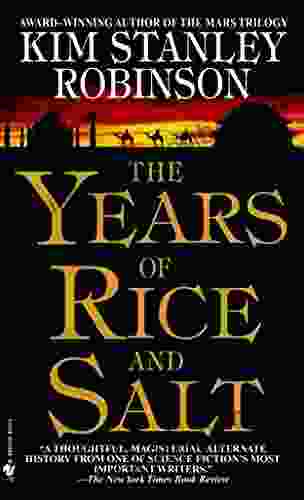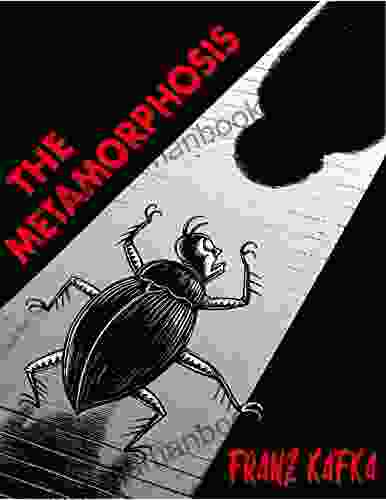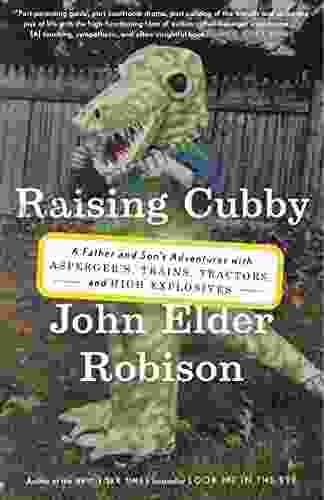Native Americans as Slaveholders and Participants in the Civil War

The Civil War was a turning point in American history, and it had a profound impact on Native Americans. Native Americans had been fighting for their land and their rights for centuries, and the Civil War gave them a chance to join forces with the United States government to defeat their common enemy, the Confederacy.
4.6 out of 5
| Language | : | English |
| File size | : | 4913 KB |
| Text-to-Speech | : | Enabled |
| Screen Reader | : | Supported |
| Enhanced typesetting | : | Enabled |
| Word Wise | : | Enabled |
| Print length | : | 1101 pages |
But Native Americans did not all fight on the same side in the Civil War. Some Native Americans fought for the Union, while others fought for the Confederacy. And some Native Americans even owned slaves.
Native Americans and Slavery
Slavery was a common practice among Native Americans long before the arrival of Europeans. Native Americans enslaved other Native Americans, as well as people from other races. Slavery was used as a way to punish criminals, to pay off debts, and to acquire labor.
When Europeans arrived in North America, they brought with them their own system of slavery, which was based on race. Native Americans were often enslaved by Europeans, and they were forced to work on plantations and in other forms of labor.
By the time the Civil War began, there were an estimated 40,000 slaves owned by Native Americans in the United States. These slaves were mostly African Americans, but they also included Native Americans and people from other races.
Native Americans who owned slaves were often wealthy and powerful. They used their slaves to work their land, to build their homes, and to provide other services.
Some Native Americans opposed slavery, and they fought to end it. But others supported slavery, and they argued that it was a necessary part of their culture.
The Civil War put Native Americans who owned slaves in a difficult position. They had to choose between fighting for the Union, which was opposed to slavery, or fighting for the Confederacy, which supported slavery.
Some Native Americans who owned slaves decided to fight for the Confederacy. They believed that the Confederacy would protect their right to own slaves.
Other Native Americans who owned slaves decided to fight for the Union. They believed that the Union would end slavery, and they wanted to be on the side of justice.
Native Americans in the Civil War
Native Americans fought on both sides of the Civil War. There were an estimated 20,000 Native Americans who fought for the Union, and there were an estimated 10,000 Native Americans who fought for the Confederacy.
Native Americans fought in every major battle of the Civil War. They served in both the infantry and the cavalry. They were known for their bravery and their fighting skills.
Native Americans also played a role in the guerrilla warfare that took place during the Civil War. They were often used as scouts and spies, and they were known for their ability to move quickly and quietly through the wilderness.
The Civil War was a bloody and costly conflict for Native Americans. They suffered heavy casualties, and many of their communities were destroyed.
The Legacy of the Civil War for Native Americans
The Civil War had a lasting impact on Native Americans. The war led to the abolition of slavery in the United States, and it helped to pave the way for the civil rights movement. However, the war also led to the loss of land and resources for Native Americans and they continued to face discrimination and prejudice.
Today, there are still many Native Americans who are fighting for their rights. They are fighting for land rights, for water rights, and for the right to self-determination. The legacy of the Civil War is a reminder that the struggle for equality is not always easy, but it is a struggle that must be fought.
4.6 out of 5
| Language | : | English |
| File size | : | 4913 KB |
| Text-to-Speech | : | Enabled |
| Screen Reader | : | Supported |
| Enhanced typesetting | : | Enabled |
| Word Wise | : | Enabled |
| Print length | : | 1101 pages |
Do you want to contribute by writing guest posts on this blog?
Please contact us and send us a resume of previous articles that you have written.
 Top Book
Top Book Novel
Novel Fiction
Fiction Nonfiction
Nonfiction Literature
Literature Paperback
Paperback Hardcover
Hardcover E-book
E-book Audiobook
Audiobook Bestseller
Bestseller Classic
Classic Mystery
Mystery Thriller
Thriller Romance
Romance Fantasy
Fantasy Science Fiction
Science Fiction Biography
Biography Memoir
Memoir Autobiography
Autobiography Poetry
Poetry Drama
Drama Historical Fiction
Historical Fiction Self-help
Self-help Young Adult
Young Adult Childrens Books
Childrens Books Graphic Novel
Graphic Novel Anthology
Anthology Series
Series Encyclopedia
Encyclopedia Reference
Reference Guidebook
Guidebook Textbook
Textbook Workbook
Workbook Journal
Journal Diary
Diary Manuscript
Manuscript Folio
Folio Pulp Fiction
Pulp Fiction Short Stories
Short Stories Fairy Tales
Fairy Tales Fables
Fables Mythology
Mythology Philosophy
Philosophy Religion
Religion Spirituality
Spirituality Essays
Essays Critique
Critique Commentary
Commentary Glossary
Glossary Bibliography
Bibliography Index
Index Table of Contents
Table of Contents Preface
Preface Introduction
Introduction Foreword
Foreword Afterword
Afterword Appendices
Appendices Annotations
Annotations Footnotes
Footnotes Epilogue
Epilogue Prologue
Prologue R J Palacio
R J Palacio Teodolinda Barolini
Teodolinda Barolini Vanessa Waltz
Vanessa Waltz Tony Le Tissier
Tony Le Tissier Gregory J Cizek
Gregory J Cizek Lucy Wolfe
Lucy Wolfe R H Sin
R H Sin Raj Balan S
Raj Balan S Melissa Samaroo
Melissa Samaroo Wayne Stinnett
Wayne Stinnett Kindle Edition
Kindle Edition J M Sandler
J M Sandler Jamal Abukou
Jamal Abukou Annette Lacroix
Annette Lacroix Em Claire
Em Claire Cheryl Strayed
Cheryl Strayed Michael Cimicata
Michael Cimicata Kevin L Gyoerkoe
Kevin L Gyoerkoe Helen E Fisher
Helen E Fisher Erik Jensen
Erik Jensen
Light bulbAdvertise smarter! Our strategic ad space ensures maximum exposure. Reserve your spot today!

 Robert HeinleinThe Ultimate Guide to Finding the Best ClickBank Products and Creating the...
Robert HeinleinThe Ultimate Guide to Finding the Best ClickBank Products and Creating the...
 Easton PowellAn Epic Legal Thriller: Joe Hennessy: A Legal Thriller That Will Keep You on...
Easton PowellAn Epic Legal Thriller: Joe Hennessy: A Legal Thriller That Will Keep You on...
 Cole PowellTex Hunter: The Legal Thriller Series That Will Keep You on the Edge of Your...
Cole PowellTex Hunter: The Legal Thriller Series That Will Keep You on the Edge of Your... Cruz SimmonsFollow ·16k
Cruz SimmonsFollow ·16k Shane BlairFollow ·6.1k
Shane BlairFollow ·6.1k John ParkerFollow ·9.4k
John ParkerFollow ·9.4k Ernesto SabatoFollow ·4k
Ernesto SabatoFollow ·4k Galen PowellFollow ·3.6k
Galen PowellFollow ·3.6k Ignacio HayesFollow ·15k
Ignacio HayesFollow ·15k Boris PasternakFollow ·7k
Boris PasternakFollow ·7k Duncan CoxFollow ·5.5k
Duncan CoxFollow ·5.5k

 Caleb Carter
Caleb CarterThe Complete Beagle Dog Beginners Guide: Beagle Facts,...
Beagles are...

 Gage Hayes
Gage HayesThe Origins and Evolution of No Child Left Behind:...
The No Child Left Behind...

 George Martin
George MartinThe Love Pirates: A Swashbuckling Tale of Love,...
The Love Pirates is a thrilling...

 Nathaniel Hawthorne
Nathaniel HawthorneDifferentiating the Curriculum for Gifted Learners:...
Gifted learners are...

 Carlos Fuentes
Carlos FuentesThe Years of Rice and Salt: A Journey Through a Forgotten...
The Years of Rice and Salt is...

 Herbert Cox
Herbert CoxThe Intricate Design of Clothing Manufacturing Processes:...
The clothing industry is a vast and...
4.6 out of 5
| Language | : | English |
| File size | : | 4913 KB |
| Text-to-Speech | : | Enabled |
| Screen Reader | : | Supported |
| Enhanced typesetting | : | Enabled |
| Word Wise | : | Enabled |
| Print length | : | 1101 pages |






